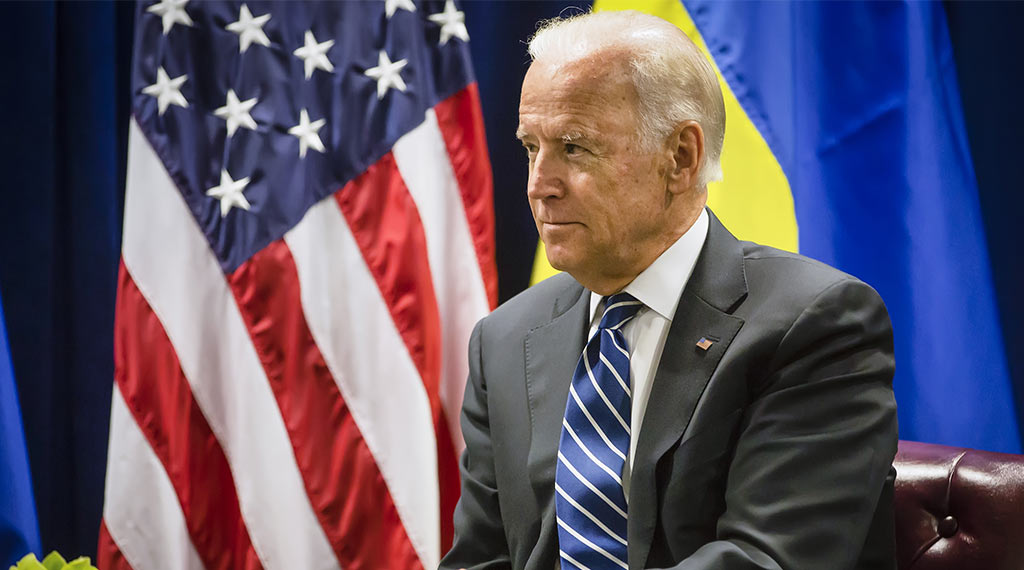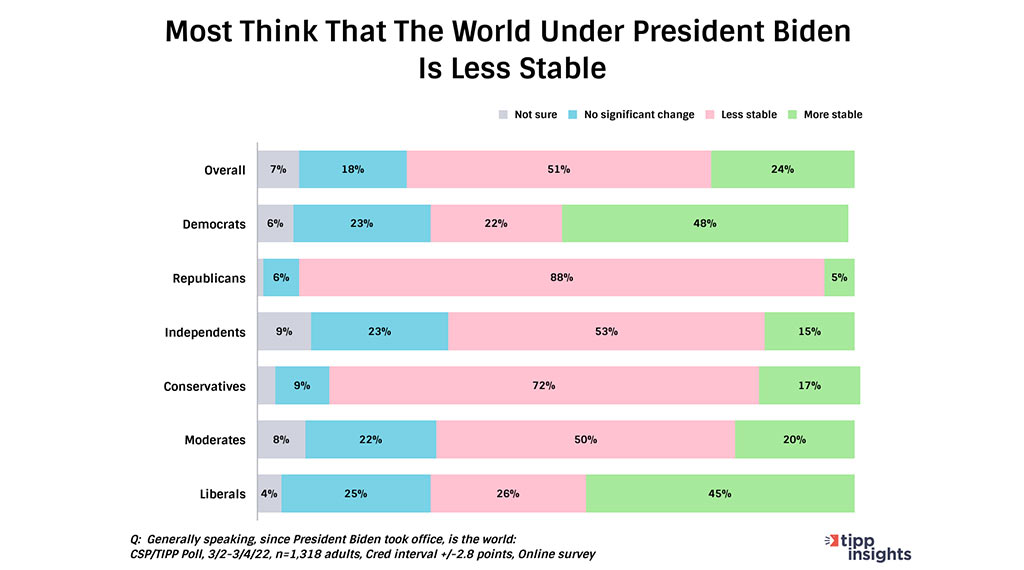51 percent of Americans believe the world is less stable since President Biden took office

Editor’s note: The Center for Security Policy gratefully acknowledges its collaboration with tippinsights on the simultaneous and exclusive release of this important story.
Under President Biden, geopolitical tensions with Russia and China have risen, while America lost face in the Afghan debacle.
51 percent of Americans believe the world is less stable since President Biden took office, according to a TIPP poll conducted for the Center for Security Policy.
The survey, conducted in early March, asked “Generally speaking, since President Biden took office is the world…” 24 percent of respondents said that the world was more stable, 18 percent said there had been no significant change, and 7 percent were not sure.
There was a sharp difference along party lines: 22 percent of Democrats, 88 percent of Republicans, and 53 percent of independents believe the world is less secure.

Russia’s Invasion Of Ukraine
Russian President Vladimir Putin’s decision to invade Ukraine on February 24 – the largest military conflict in Europe since World War II –undoubtedly impacted Americans’ perception of world stability. While the President is not responsible for many of the factors that contribute to global instability, only about one-third of the country gave Biden good grades for his handling of Russia.
A recent TIPP poll showed that 56 percent blame Biden’s Afghan debacle for emboldening Putin to invade Ukraine. Another poll, conducted by the Harvard Center for American Political Studies (Caps)-Harris, found that 62 percent of those surveyed believed Putin would not have invaded Ukraine if former President Donald Trump was still in office.
Biden’s Handling Of Russia
In late 2021, the Biden administration began warning about a build-up of Russian troops on the Ukrainian border. The administration provided extensive detail about the intelligence, raising eyebrows among national security experts as intelligence agencies typically go to great lengths to avoid revealing sources and methods.
Despite that, Biden repeatedly said the U.S. would not send troops – not even to evacuate Americans in Ukraine because it would be “world war.” In fact, Biden removed U.S. troops training Ukrainian fighters days before the invasion to avoid the possibility of U.S.-Russian military interaction.
Biden went to great lengths to tell Putin that the United States did not want a war with Russia – which was precisely what Putin wanted to hear. Putin invaded Ukraine without the risk of a U.S. military response.
Despite strong rhetoric, Biden’s actions since the invasion have been similarly weak-kneed. The European Union announced sanctions against Putin personally and agreed to cut Russian banks out of the SWIFT financial system before the Biden administration announced they would do the same. Sanctions did not include energy exports – which account for 36 percent of Russia’s total budget – until March 8, and only after the U.K. announced they would phase out Russian energy.
Furthermore, the administration has subcontracted negotiation of the Iran nuclear deal to Russia. The details of the agreement with Iran have not been made public, raising bipartisan concerns in Congress. Russia has already used its positions in the negotiations to its advantage by halting discussions until the U.S. agreed it would not sanction Russian nuclear projects in Iran – which will amount to a multi-billion dollar payout for Moscow.
Unfortunately, President Biden’s refusal to act decisively against Putin will be noticed by other dictators around the world and until that changes, Americans can expect more global instability.
- Analyzing Radical Leftist Networks in Utah - September 23, 2025
- 51 percent of Americans believe the world is less stable since President Biden took office - March 28, 2022
- Biden’s weakness will result in aggression - August 23, 2021
